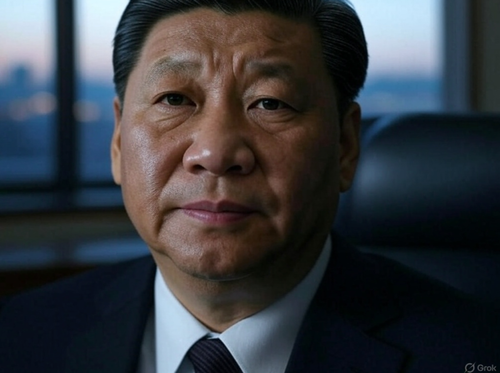
Who Blinks First? China May Exempt Tariffs On US Ethane & Other Goods
By now it’s become increasingly clear that both the U.S. and China are eager to de-escalate the trade war, yet neither is willing to make the first move. In China, export orders are drying up, and factories are shutting down. Meanwhile, across the Pacific Ocean in the U.S., containerized cargo volumes through the Port of Los Angeles are teetering on the edge of a very sharp decline, threatening to send shockwaves through Southern California’s economy and beyond.
Early Friday, several media outlets reported that China’s government has either considered or exempted some U.S. imports from a 125% tariff rate.
Let’s begin with Bloomberg, which cited people familiar with the matter who said Beijing is considering removing tariffs on medical equipment and certain industrial chemicals, including ethane.
As we noted earlier this week, the U.S. is a major supplier of ethane—a petrochemical feedstock and component of natural gas. Ethane is a critical input for China’s plastics industry, with few alternative suppliers outside the U.S. Needless to say, any disruption to ethane shipments would severely impact China’s plastics sector.
Those sources continued down Beijing’s laundry list of potential tariffs to be removed, including waiving the tariff for plane leases… Boeing has caught a sigh of relief.
„It’s another step toward a de-escalation of the trade war,” said Kok Hoong Wong of Maybank Securities, adding that a trade deal might not be imminent, but certainly, „it would appear the worst may truly be over.”

Bloomberg Economics analysts Chang Shu and Eric Zhu commented on the BBG headline:
„Exempting critical, hard-to-replace U.S. products from tariffs would be a pragmatic approach that could ease tensions with the U.S. and serve the interests of Chinese industry. Anything that helps lower the temperature in the trade war is also beneficial from the perspective of avoiding broader clashes with the U.S.”
In a separate report, Reuters stated that instead of merely considering exemptions, Beijing has already „exempted” certain U.S. imports from the 125% tariff, citing businesses that were notified by authorities about the change.
„As a quid-pro-quo move, it could provide a potential way to de-escalate tensions,” said Alfredo Montufar-Helu, a senior adviser to the Conference Board’s China Center.
Montufar-Helu warned: „It’s clear that neither the U.S. nor China want to be the first in reaching out for a deal.”
Earlier in the week, U.S. Treasury Secretary Scott Bessent warned a US-China trade deal could take 2 to 3 years to finalize.
Bessent emphasized at a closed-door investor meeting on Tuesday: „No one thinks the current status quo is sustainable, at 145% and 125%, so I would posit that over the very near future, there will be a de-escalation. We have an embargo now on both sides.”
Both sides may want a deal to avoid further tariff fallout in their respective economies, but neither wants to appear desperate on the global stage. China is grappling with shuttered factories and possible ethane supply woes that threaten to roil its core manufacturing economy, while in the U.S., containerized volumes through the Port of Los Angeles are poised for a steep decline in the coming week
Tyler Durden
Fri, 04/25/2025 – 10:20


















